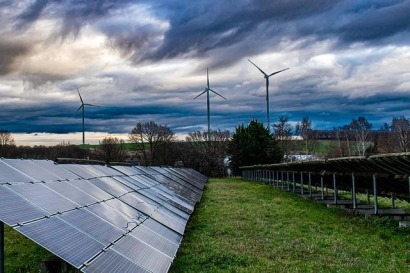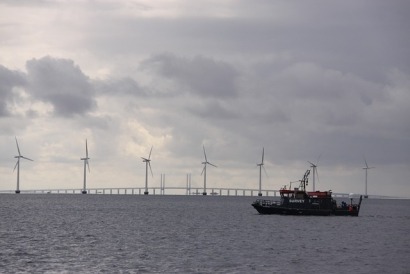WOBO appreciates the links to energy developments taking place around the world
EU Parliament’s vote on Buildings directive is a hit and miss for our buildings transition, says Climate Action Network (CAN) Europe
MEPs vote in favour of a mandatory renovations requirement that limits exemptions is welcome, and it will help lift millions of Europeans out of energy poverty for winters to come, but the flexibilities granted to heating technologies certified to run on renewable fuels is a ‘trojan horse’, as they

undermine the 2035 phase out date of fossil fuels in buildings, says CAN Europe.
On March 14, in Strasbourg, a solid majority of MEPs voted on the EU Buildings directive (EPBD), the primary piece of legislation regulating buildings across the EU and key in the climate and energy legislative package ‘Fit for 55’ that should operationalise the EU Green Deal.
The vote is a crucial step in the Directive’s revision process and how the EU is responding to its current ‘trilemma’ – a lack of energy security and a cost of living and climate crises. While there are positives to be taken from the EU Parliament’s final agreement on the directive, such as a stronger framework around mandatory renovations (Minimum Energy Performance Standards) which results in more vulnerable homes being renovated, flexibilities on heating technologies’ risk undermining the 2035 fossil fuel phase out date and locking in more vulnerable households into using expensive and polluting fossil-fuel based technologies for seasons to come.
Read more : https://www.renewableenergymagazine.com/energy

Siemens Smart Infrastructure, in partnership with Fluence, a market leader in energy storage established in 2018 by Siemens and AES, has successfully completed and handed over a sustainable energy project on the Azores island of Terceira to the Portuguese energy provider EDA – Electricidade dos Açores.
The project combines software that forecasts energy consumption and production with a powerful battery-based energy storage system, allowing for greater and more reliable integration of renewable energy sources such as wind or solar into the power grid. This combination is expected to reduce CO2 emissions by more than 3,600 tons per year. The Spectrum Power Microgrid Management System (MGMS) software implemented for EDA is part of the Siemens Xcelerator portfolio which supports the digital transformation of power utilities worldwide.

The Shell Gulf Wind Technology Accelerator will be a key enabler for wind in the region, combining research and development of new technologies with the Gulf’s first technology-focused education and training facility for workforce development aimed at accelerating the Gulf of Mexico offshore wind learning curve.
“Wind resources in the Gulf region are more variable than what you find on the east coast where most of US offshore wind development activity is currently happening,” says James Martin, GWT CEO.
“Seasonal hurricane conditions and moderate average wind speeds create a situation that requires a novel approach to the application of technology and the framework in which it is both developed and demonstrated. The program has been specifically created to address and fulfil this need and enable next steps for the region and for the industry.“
Read more: https://www.renewableenergymagazine.com/wind/gulf-wind-technology-and-shell-collaborate
